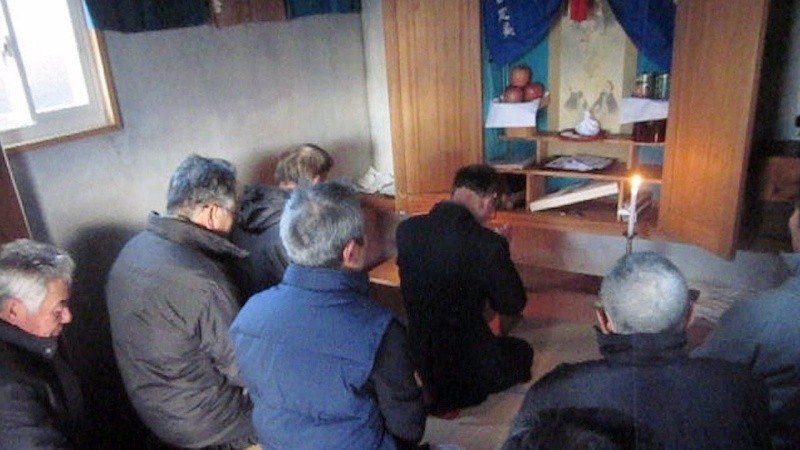Do you know how to say a prayer in Japanese? What words to use in a prayer? What are the standard prayers with our father in Japanese? Do traditional Japanese often say prayers? In this article, we will answer these and other questions.
Inori - Prayer in Japanese
Prayer in Japanese is written inori [祈り] with character [祈] which means prayer and desire. The prayer has different meanings depending on the religion but the generic term in Japanese is inori.
Shintoists and Buddhists use kitou [祈祷] to refer to prayers and graces at meals or even exorcism. Prayer meetings are called kitoukai [祈祷会]. Prayer books are called kitousho [祈祷書].
In Shintoism, prayer is also a shiji [神事] which consists of praying in front of a God, which may include festivals, worship, temple building, shrines, monuments and mountains. However, there are some overlaps.
Other words related to prayer are:
- Kinen [祈念] - Prayer;
- deny [願い] - Desire; hope; supplication; prayer;
- Shingan [心願] - Prayer; sincere desire;
- Kingan [祈願] - Prayer for something;
- Oinori [お祈り] - Prayer;
- Pureiyaa [プレイヤー] - English prayer;
- Juzu [数珠] - Rosary; necklace of prayer beads;
- Orasho [オラショ] - Prayer from the Latin oration;
- Kisei [祈請] - Supplicates; prayer;
- Norito [祝詞] - Shinto prayer ritual;
- Goriyaku [御利益] – Divine favor; blessing; miracle; answer to a prayer;
- Nenbutsu [念仏] - Prayer to Amitabha Buddha;
- Seigen [誓願] - Oath; vote;
- Kigansho [祈願所] - Place of Prayer;
It is worth remembering that most of the words we saw are also verbs do [する].

Our Father's Prayer in Japanese
I'm not Catholic, but this is a model Christian prayer, no matter what you say. So I chose it for us to analyze and study in depth to inspire your own prayers.
I don't know if it is standardized with the prayer of the Catholic Our Father as I used a translation of the bible in Japanese [新世界訳] because it is the most modern and simplest bible in japanese language with current words and expressions that are easy to understand.
『天におられる私たちの父よ, Ten ni ora reru watashitachi no chichiyo, Our Father who art in heaven
お名前が神聖なものとされますように。 Onamae ga shinseina mono to sa remasu yō ni. May your name be hallowed.
10 あなたの王国が来ますように。 10 Anata no ōkoku + ga kimasu yō ni. let your kingdom come
あなたの望まれることが, Anata no nozoma reru koto ga, Thy will be done
天と同じように地上でも行われますように。 Ten to onajiyōni chijō demo okonawa remasu yō ni. May it be done both on earth and in heaven.
今日,この日のためのパンを私たちにお与えください。 Kyō, kono Ni~Tsu no tame no pan o watashitachi ni o atae kudasai. Give us bread for this day.
12 私たちに罪を犯した人たちを私たちが許しましたように, 12 Watashitachi ni tsumi o okashita hito-tachi o watashitachi ga yurushimashita 1yō ni
私たちの罪をお許しください。 Watashitachi no tsumi oo yurushi kudasai. Please forgive our sins.
13私たちを誘惑に陥らせないで, 13 Watashitachi o yūwaku ni ochīra senaide, 13 Lead us not into temptation.
邪悪な者から救い出してください』。 Jaakuna-sha kara sukuidashite kudasai”. Save from the wicked.
Amen in Japanese is literally amen [アーメン]. In Buddhism, the expression namu [南無] which also serves as a greeting.





